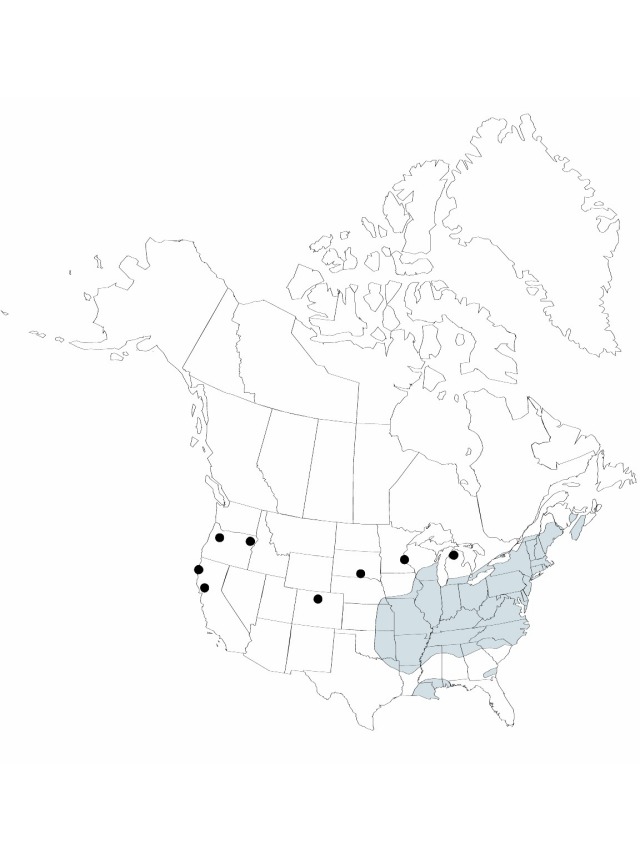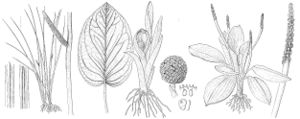Difference between revisions of "Acorus calamus"
Sp. Pl. 1: 324. 1753.
imported>Volume Importer |
imported>Volume Importer |
||
| Line 59: | Line 59: | ||
|publication year=1753 | |publication year=1753 | ||
|special status=Introduced;Illustrated | |special status=Introduced;Illustrated | ||
| − | |source xml=https:// | + | |source xml=https://bitbucket.org/aafc-mbb/fna-data-curation/src/2e0870ddd59836b60bcf96646a41e87ea5a5943a/coarse_grained_fna_xml/V22/V22_447.xml |
|genus=Acorus | |genus=Acorus | ||
|species=Acorus calamus | |species=Acorus calamus | ||
Latest revision as of 21:31, 5 November 2020
Leaves basally white with pink or red, otherwise bright green; single midvein (secondary midrib) prominently raised above leaf surface, usually somewhat off-center, other veins barely or not raised; cross section rhomboid. Vegetative leaves to 1.75 m; sheathing base (proximal part of leaf) 22.1–66.5(–73.3) cm; distal part of leaf 31.9–95.8(–117.6) × 0.5–2 cm, 1.4–1.8 times longer than proximal part of leaf, margins sometimes undulate or crisped. Sympodial leaf (29.9–)34.7–159.1(–183.9) cm, usually shorter than to nearly equal to vegetative leaves; sheathing base 16.1–76.4(–100.1) cm; distal part of leaf 13.5–86.2(–101.2) × 0.4–1.9 cm. Spadix (3.8–)4.9–8.9 cm × 5.3–10.8 mm at anthesis, post-anthesis spadix 5.5–8.7 cm × 6–12.6 mm. Flowers 3–4 mm; pollen grains not staining in aniline blue. Fruits not produced in North America. 2n = 36.
Phenology: Flowering early spring–early summer.
Habitat: Wet open areas, marshes, swales, and along edges of quiet water
Elevation: 0–900 m
Distribution

Introduced; N.B., N.S., Ont., Que., Ala., Ark., Calif., Colo., Conn., Del., D.C., Ga., Ill., Ind., Iowa, Kans., Ky., La., Maine, Md., Mass., Mich., Minn., Miss., Mo., Nebr., N.H., N.J., N.Y., N.C., Ohio, Okla., Oreg., Pa., R.I., S.C., S.Dak., Tenn., Tex., Vt., Va., W.Va., Wis., Europe, Asia, Africa, Indian Ocean Islands, Pacific Islands.
Discussion
Acorus calamus, a sterile triploid, was introduced to North America by early European settlers, who grew it for medicinal uses. Rhizomes propagate easily, and the species has spread throughout northeast and central United States. Scattered populations occur elsewhere. Although leaf and spadix size of A. calamus and A. americanus overlap, those measurements differ significantly, with A. calamus in general having longer and wider leaves and longer spadices.
